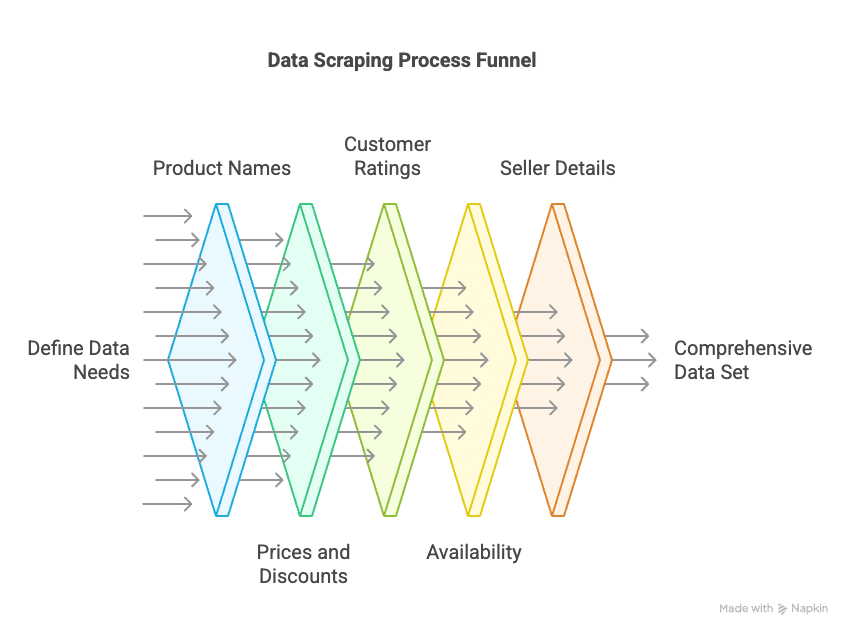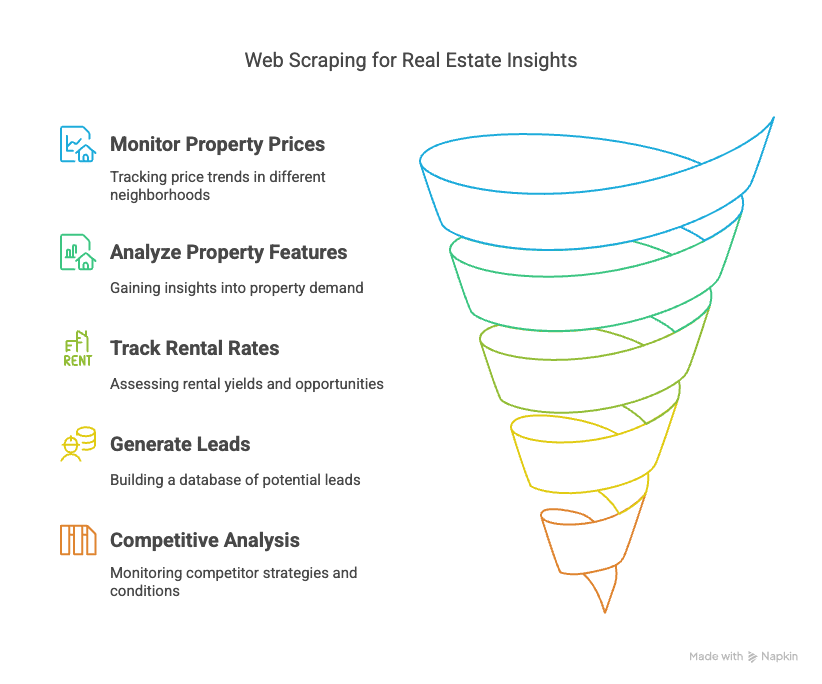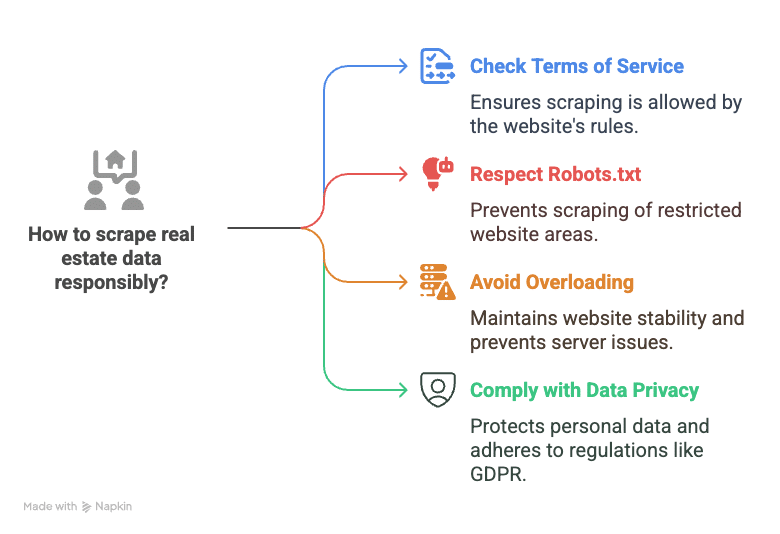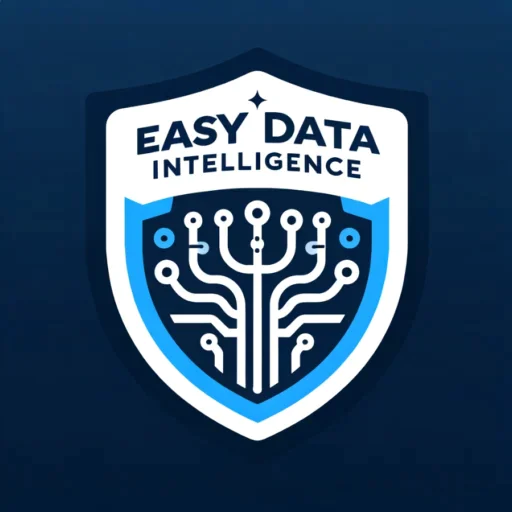Introduction: Why Web Scraping Hotel Prices is Crucial for the Travel Industry
In the highly competitive travel industry, staying ahead of market trends and adjusting pricing strategies is critical to attracting customers. Web scraping hotel prices provides a powerful way to monitor competitor prices, track trends, and adjust your own rates in real-time. By automating the process of price monitoring, hotels, travel agencies, and online booking platforms can gather data from multiple sources efficiently, ensuring that they stay competitive and relevant. In this article, we’ll explore how web scraping hotel prices can enhance your pricing strategy, boost sales, and improve your market position.
- Introduction: Why Web Scraping Hotel Prices is Crucial for the Travel Industry
- What is Web Scraping Hotel Prices?
- Key Benefits of Web Scraping Hotel Prices
- How to Scrape Hotel Prices Effectively
- Legal and Ethical Considerations in Web Scraping Hotel Prices
- Conclusion: Enhance Your Pricing Strategy with Web Scraping Hotel Prices
What is Web Scraping Hotel Prices?
Web scraping hotel prices refers to the process of using automated tools or scripts to extract pricing data from hotel booking websites, travel platforms, or even competitor websites. This data can include room rates, seasonal discounts, promotional offers, and pricing for specific dates. By scraping hotel prices from multiple websites, businesses can gain valuable insights into competitor pricing strategies, track changes in pricing trends, and adjust their own prices to stay competitive.
This process is often automated, allowing businesses to collect large volumes of data in real-time, which would be impossible to achieve manually. Web scraping tools can handle complex data structures and dynamic content, ensuring accurate and up-to-date pricing information.

Key Benefits of Web Scraping Hotel Prices
-
Real-Time Price Monitoring
The primary benefit of web scraping hotel prices is the ability to monitor prices in real-time. This is crucial for businesses that need to keep up with fluctuations in hotel rates, seasonal price changes, and competitor pricing strategies. Real-time data enables businesses to adjust their own pricing and promotional offers quickly, ensuring they remain competitive in the market. -
Competitive Intelligence
By scraping hotel prices from competitor websites, businesses can gather valuable insights into how their competitors are pricing their rooms and services. This information helps hotels and travel agencies understand pricing trends, track promotions, and identify opportunities to offer more competitive rates. Competitive intelligence gathered through web scraping can give businesses the edge they need to attract more customers and increase bookings. -
Dynamic Pricing Strategy
With the help of web scraping hotel prices, businesses can implement a dynamic pricing strategy. By continuously monitoring hotel rates across different websites, businesses can adjust their pricing based on factors like demand, occupancy rates, and competitor prices. Dynamic pricing allows businesses to optimize revenue by adjusting room rates according to market conditions. -
Market Trend Analysis
Web scraping allows businesses to track long-term pricing trends in the hotel industry. By collecting data over time, businesses can analyze how prices change seasonally, identify patterns, and make informed decisions about their own pricing strategies. This data can also help businesses forecast demand and plan for future pricing adjustments. -
Improved Customer Experience
By scraping hotel prices, businesses can ensure that their own pricing is competitive and attractive to customers. Real-time pricing data also allows businesses to offer personalized discounts or promotions to their customers, improving customer satisfaction and increasing the likelihood of repeat bookings.
How to Scrape Hotel Prices Effectively
To effectively scrape hotel prices, follow these steps:
1. Choose the Right Web Scraping Tool
There are several web scraping tools available that can help you automate the process of collecting hotel pricing data. Some popular options include:
- Scrapy: An open-source Python framework for large-scale web scraping projects.
- BeautifulSoup: A Python library for parsing HTML and extracting data, ideal for smaller scraping tasks.
- Octoparse: A user-friendly, no-code scraping tool that supports both static and dynamic websites.
- ParseHub: A visual web scraping tool that can extract data from complex websites with ease.
2. Define Your Data Collection Goals
Before scraping hotel prices, clearly define what data you need to collect. This could include:
- Room rates for different dates
- Promotional offers and discounts
- Hotel names, locations, and amenities
- Pricing for different room types or packages
By clearly defining your data collection needs, you can ensure that your scraping tool collects only the relevant data.
3. Set Up Scraping Parameters
Once you’ve selected a tool and defined your goals, set up the scraping parameters. This includes:
- Frequency: Decide how often you want to collect data (e.g., hourly, daily).
- Data points: Specify which data points you want to extract (e.g., room rates, hotel names, location).
- Output format: Choose the format in which you want the data (e.g., CSV, Excel, JSON).
4. Run Your Scraper
Once your scraper is set up, run it to start collecting hotel price data. Many scraping tools allow you to schedule scraping tasks, so you can collect data automatically at specified intervals. Monitor the process to ensure the data is being extracted correctly.
5. Analyze and Use the Data
After scraping hotel prices, clean and organize the data for analysis. Use tools like Excel, Google Sheets, or business intelligence platforms to analyze the data and extract insights. For example, you can identify the best times to adjust pricing, analyze competitor strategies, or forecast demand.

Legal and Ethical Considerations in Web Scraping Hotel Prices
When scraping hotel prices, it’s important to consider legal and ethical guidelines:
- Review Website Terms of Service: Some hotel websites or travel platforms may have terms that prohibit scraping. Always check the terms of service of the websites you plan to scrape to ensure compliance.
- Respect Robots.txt: Ensure that your scraper follows the robots.txt file, which indicates which parts of a website can be scraped.
- Avoid Overloading Servers: Be mindful of the frequency and volume of your scraping requests. Excessive scraping can slow down or disrupt the website’s server, leading to temporary or permanent bans.

Conclusion: Enhance Your Pricing Strategy with Web Scraping Hotel Prices
Web scraping hotel prices is a powerful tool for businesses in the travel and hospitality industries. By automating the collection of pricing data, businesses can monitor competitor rates, track pricing trends, and adjust their own pricing strategies to stay competitive. Whether you’re an independent hotel, a travel agency, or an online booking platform, web scraping can help you optimize revenue, improve customer experience, and make more informed decisions.
For more information on how Easy Data can help with your web scraping needs, visit EasyData.io.vn.
External Links


Leave a Reply